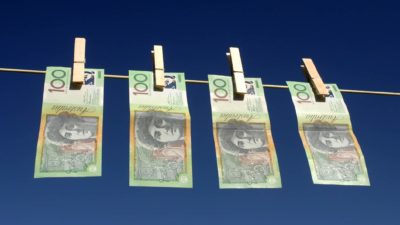Salary sacrificing is an option available to many Australians through their employment contract and compensation arrangements – so what is it and when is it worth using?
Back to basics: what is salary sacrificing?
Salary sacrificing is a part of salary packaging here in Australia, in which employees (i.e. you) can sacrifice a portion of your pre-tax income and divert that money towards other causes such as rent, car payments or superannuation. For the purposes of my analysis, I'm going to focus specifically on salary sacrificing into superannuation, rather than the much broader salary packaging available under many employment arrangements.
While not for everyone, it's worth considering salary sacrificing a portion of your pre-tax income into super to build that retirement nest-egg and put your investments in a tax-sheltered investment vehicle – after all, lower tax means higher real returns.
A simple case study – reducing your tax
Superannuation is currently mandated for most workers in Australia at 9.5% or more of your salary, and super contributions are taxed at 15%. This means that an Australian who currently earns $100,000 per year would receive $9,500 ($~8,000 net) in super contributions from their employer and receive ~$75,000 take-home pay after paying ~$25,000 in taxes. So the net position for this investor would be the $8,000 from super plus the $75,000 in take-home pay = ~$83,000.
In contrast, by sacrificing $10,000 of their before-tax income, this same investor would receive net super of ~$16,500 and take-home pay of ~$69,000 after paying ~$19,500 in taxes. This would result in a net position of $85,500 – an increase of ~$2,500 as they now have a taxable income of $90,000 instead of $100,000.
Of course, this difference only grows as the level of salary sacrificing increases (up to a $25,000 before-tax cap on concessional contributions) and the individual's marginal tax rate increases.
When is it best to salary sacrifice?
Investing 101 tells us that the magic of compounding interest is your best friend when investing and superannuation is no different. The younger you put money into your tax-sheltered super fund, the more those investments will grow and compound over time until you reach preservation or retirement age.
But while it all sounds great, it is not as simple as putting all your money straight into super and calling it quits.
The biggest risks of pouring money into super are two-fold: illiquidity and regulatory.
Superannuation is locked away (effectively) until preservation age is reached, which is currently 60 years of age, and only likely to increase as the pension burden increases and Australians live longer.
On the regulatory front, it's very easy to see why governments want to get their hands on super. What better way to fix a budget deficit and score a political win than to tinker with the super system to generate more taxes that go straight to the government purse?
So while salary sacrificing can be a tax-efficient investment vehicle and is well worth considering, it may not be the optimal investment particularly for younger Australians and those on low incomes – particularly given that money is locked up for a long, long time.
For those who want to see some serious growth in their retirement portfolio, this top-rated stock could be set to capitalise on a $22 billion opportunity and could be the perfect portfolio fit.







